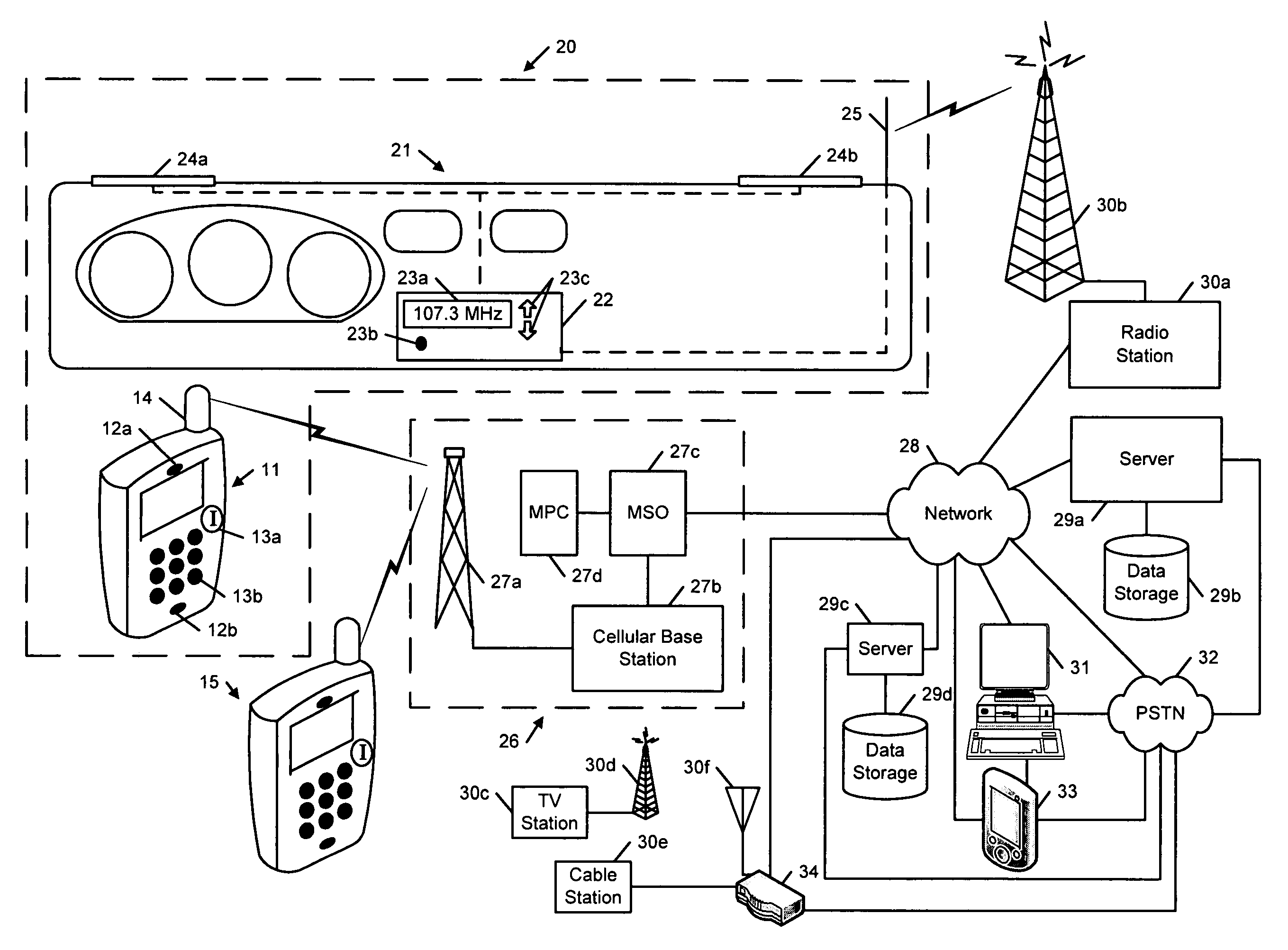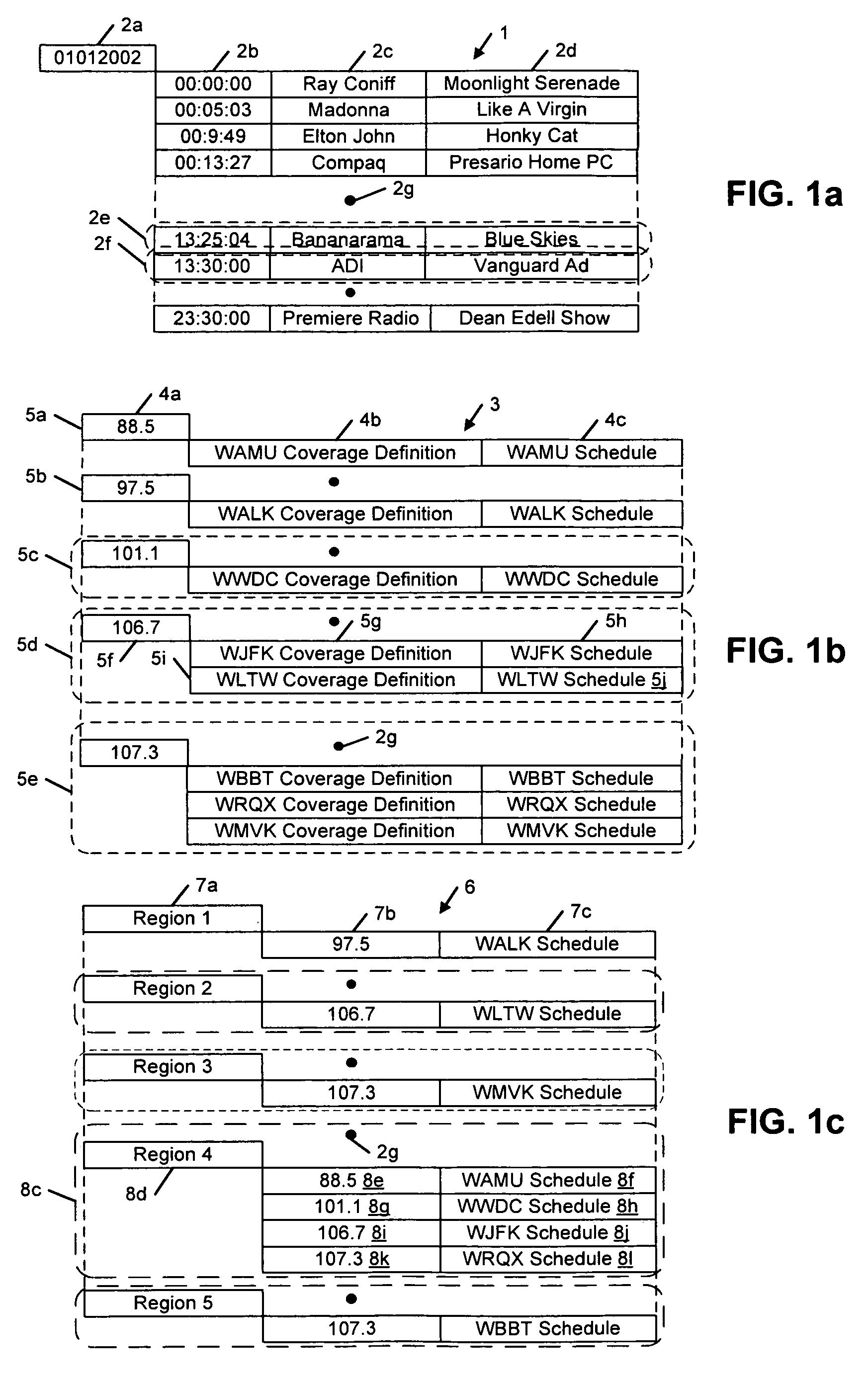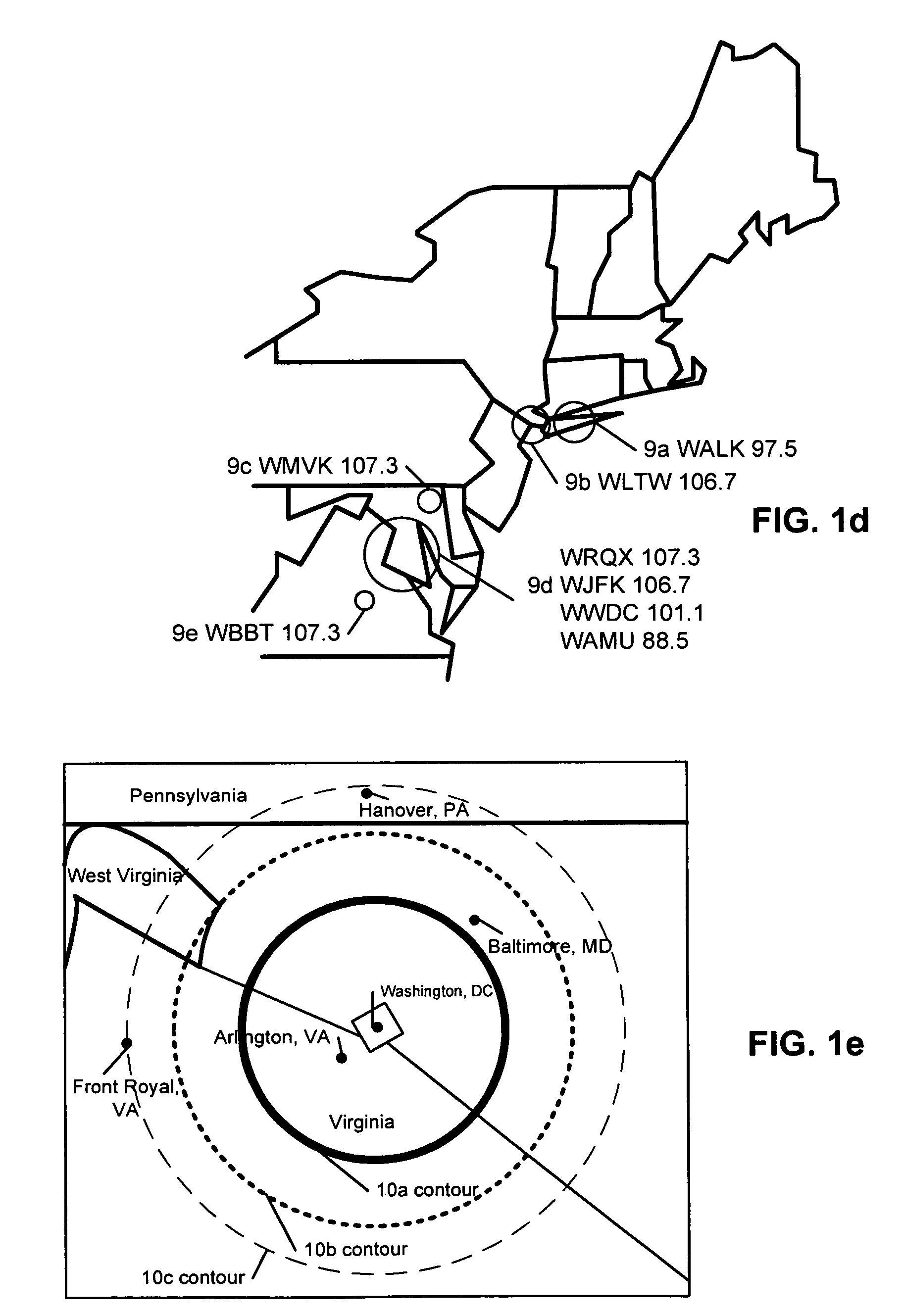Providing alternative programming on a radio in response to user input
a radio and user input technology, applied in the field of interactive cable television systems, can solve the problems of not appealing to the public, inability to generate significant user loyalty or interest, and inability to provide interactivity to conventional broadcast programming. to be financially viable, and add-on systems have been proposed
- Summary
- Abstract
- Description
- Claims
- Application Information
AI Technical Summary
Benefits of technology
Problems solved by technology
Method used
Image
Examples
Embodiment Construction
[0117]According to the present invention, methods of and apparatus for consuming or interacting with items of programming including but not limited to songs, advertisements and video clips are described. Furthermore, methods and apparatus for providing an information identifier that is suitable for identifying information related to an item of broadcast programming presented by a broadcast receiver are described. In the following description, for purposes of explanation, numerous specific details are set forth in order to provide a thorough understanding of embodiments according to the present invention. It will be evident, however, to one skilled in the art that the present invention may be practiced in a variety of broadcast programming reception contexts including cable, satellite and over-the-air (OTA) television, and cable, OTA and satellite radio, and other systems in which a broadcast receiver radiates a tuning signal or is capable of receiving a channel identification signal...
PUM
 Login to View More
Login to View More Abstract
Description
Claims
Application Information
 Login to View More
Login to View More - R&D
- Intellectual Property
- Life Sciences
- Materials
- Tech Scout
- Unparalleled Data Quality
- Higher Quality Content
- 60% Fewer Hallucinations
Browse by: Latest US Patents, China's latest patents, Technical Efficacy Thesaurus, Application Domain, Technology Topic, Popular Technical Reports.
© 2025 PatSnap. All rights reserved.Legal|Privacy policy|Modern Slavery Act Transparency Statement|Sitemap|About US| Contact US: help@patsnap.com



